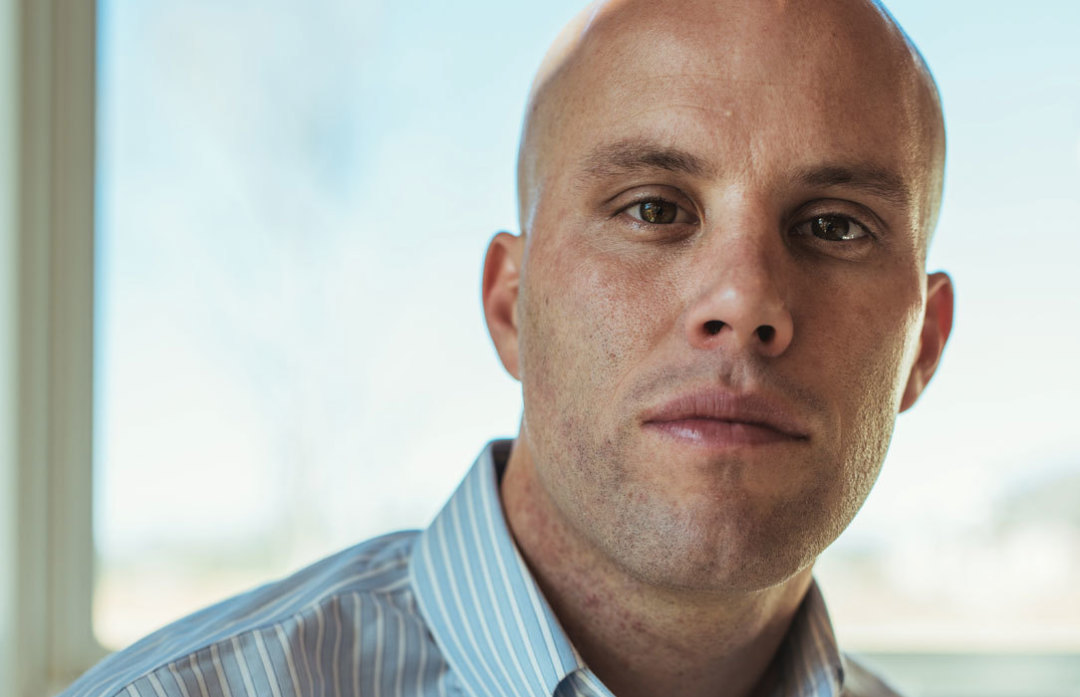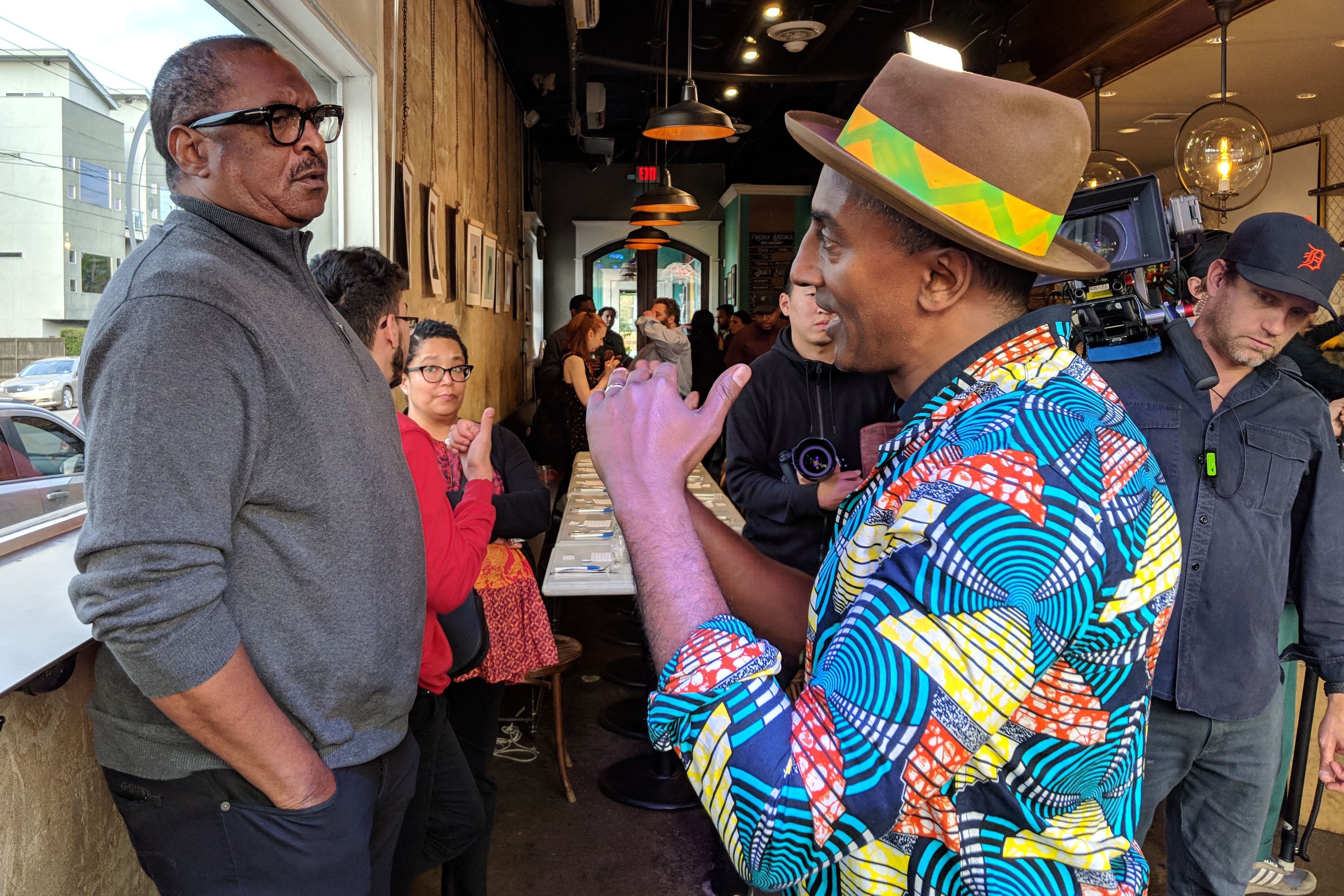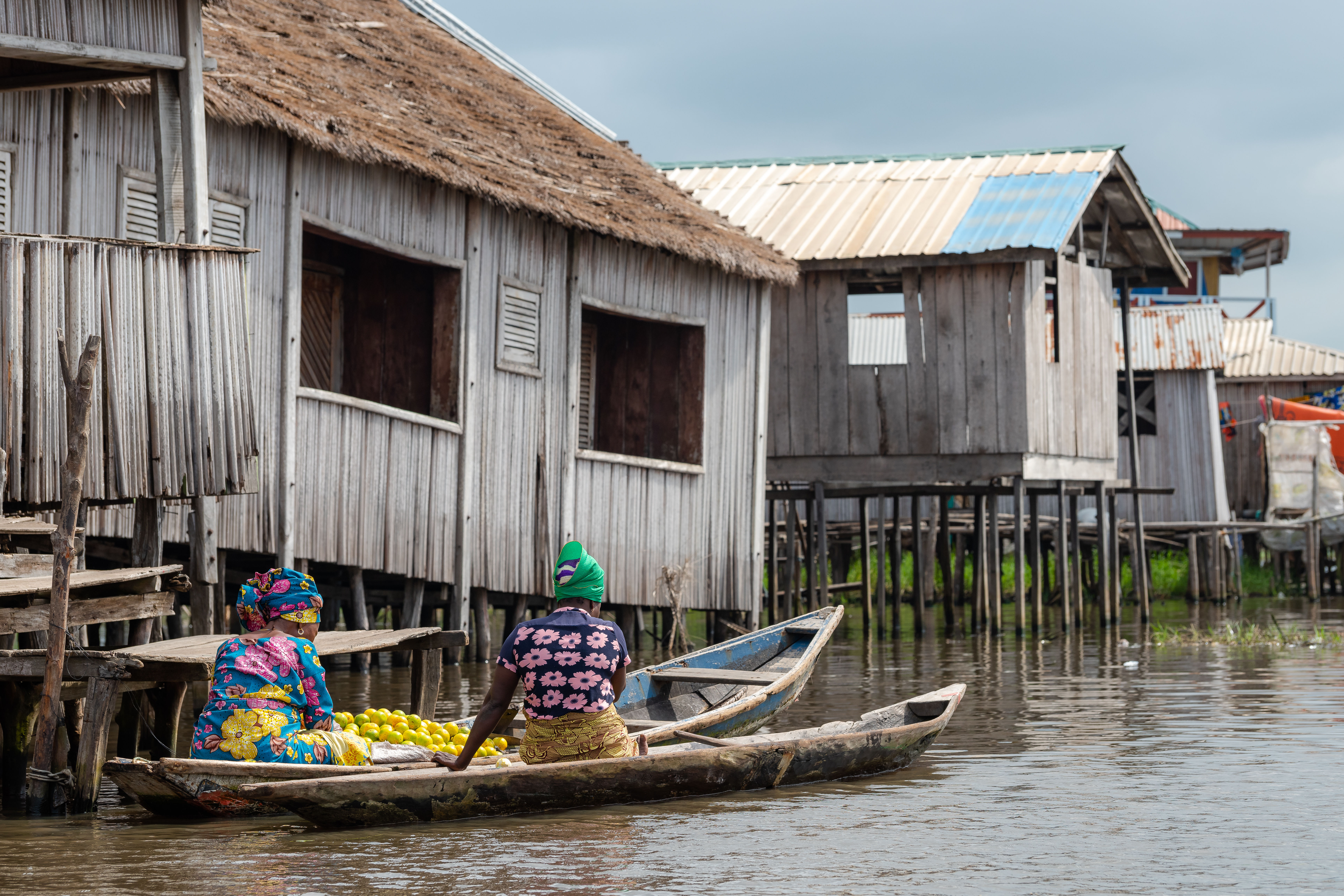Can One Man Save 10,000 Children?

Chris Field, founder of the Mercy Project, which has to date freed 46 children from slavery.
Image: Max Burkhalter
Tomas, that was the boy’s name. The first time Chris Field traveled to Ghana, in 2009, he tagged along with an organization trying to negotiate Tomas’s freedom. The 9-year-old’s family had sold him to a village of Lake Volta fishermen, and now he was forced to drag heavy nets, morning till night, through the dangerous waters of the huge manmade lake. As the aid workers and the villagers talked, Tomas took hold of Field’s hand with a desperate, tight clutch and looked up into his eyes, hopeful.
Then something happened. Field wasn’t sure exactly what—he didn’t speak the language—but clearly talks broke down. He saw his group turn and walk away. Field followed them reluctantly, all the while trailed by other children, laughing and silly children, un-trafficked children.
He looked back one last time. Tomas was still standing in the same spot, his head resting against a pole. “He had the most helpless look on his face,” says Field, now worlds away at the West Alabama Ice House. “It was almost like his face was saying, Of course I don’t get to go. Why would I have ever thought I get to leave here?”
There are an estimated 7,000 to 10,000 fisher-children on Lake Volta, boys and girls pressed into service by men who were themselves once sold to fishermen. The Ghanaian government is aware of the problem, having enacted anti-trafficking legislation in 2005, but the law is largely ignored.
“I came home from that trip—and my wife was six months pregnant with our first child—and I was like, ‘I don’t know how I could see all that and just walk away.’” With her blessing, he started Mercy Project in 2010.
At the time, Field was a Church of Christ pastor at a church outside of Dallas—he’s still religious, though not vociferously so—and an unlikely marriage of idealist and pragmatist. When he moved to College Station and started Mercy, now his full-time job, he was only certain about how he didn’t want to do things. He didn’t want Mercy to simply buy back the children, as other well-meaning groups do. “That’s the worst idea ever,” the 32-year-old says. “They buy low and sell high. That just becomes a game, and you’re also participating in the process of child trafficking when you pay money for a human being.”
Field spent two years creating a sustainable plan for his organization, along with raising money, always raising money. He played kickball for 50 hours straight, setting one of his four Guinness World Records, to raise money. In 2011, he started College Station’s BCS Marathon to raise money.
We expect their children to go to school. We don’t like to see children fishing. It’s not good for the children. It’s not good for the future of Ghana.
The way it works is this: a few Mercy workers go into a village and ask for a meeting with its chiefs and elders under one of the biggest mango trees, which is where all a village’s important conversations are held (and which gave Field the title for his new children’s book, Under the Mango Tree: A Story of Friendship and Freedom). They discuss how unproductive net fishing is, especially in an overfished lake where the specimens get smaller all the time, and how rewarding fishing with cages can be—big cages that can haul in up to 10,000 fish apiece, cages Mercy will give them for free.
What’s the catch, wonder the villagers?
“We expect their children to go to school. We don’t like to see children fishing. It’s not good for the children. It’s not good for the future of Ghana.” The proposal, Field points out, makes not only moral but economic sense. If a village agrees to it, the children go back to their families, and Mercy—which employs eight people in Ghana and six in the US—helps with the transition home.
In the last five years, Field has traveled to Ghana 30 times, even as he and his wife have had four kids of their own, even as Mercy Project has raised close to $2 million—even as the organization has freed 46 children from two villages. And Field believes they can free many more, maybe a thousand over the next five years.
“All of a sudden, 7,000 seems less daunting,” he says. “This is actually solvable in our lifetime. I’m 32, and there’s no reason that by the time I’m 50, there can’t be no trafficked children in all of Ghana.”




